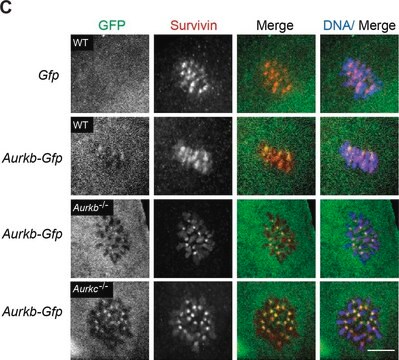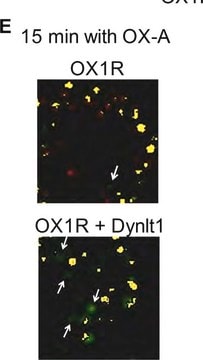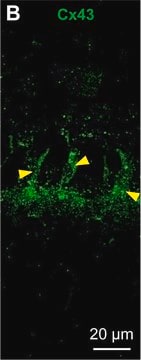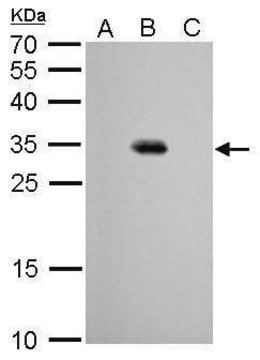SAB5300167
Monoclonal Anti-GFP antibody produced in mouse
clone 4B10B2, purified immunoglobulin, buffered aqueous solution
Synonym(s):
N/A
About This Item
Recommended Products
biological source
mouse
Quality Level
conjugate
unconjugated
antibody form
purified immunoglobulin
antibody product type
primary antibodies
clone
4B10B2, monoclonal
form
buffered aqueous solution
mol wt
27 kDa
technique(s)
direct ELISA: 1:10,000
flow cytometry: 1:200-1:400
immunohistochemistry: 1:200-1:1,000
western blot: 1:500-1:2,000
isotype
IgG2a
shipped in
wet ice
storage temp.
−20°C
target post-translational modification
unmodified
Related Categories
General description
Immunogen
Mouse monoclonal antibody raised against GFP
Application
Physical form
Disclaimer
Not finding the right product?
Try our Product Selector Tool.
Storage Class Code
12 - Non Combustible Liquids
WGK
WGK 3
Flash Point(F)
Not applicable
Flash Point(C)
Not applicable
Certificates of Analysis (COA)
Search for Certificates of Analysis (COA) by entering the products Lot/Batch Number. Lot and Batch Numbers can be found on a product’s label following the words ‘Lot’ or ‘Batch’.
Already Own This Product?
Find documentation for the products that you have recently purchased in the Document Library.
Customers Also Viewed
Our team of scientists has experience in all areas of research including Life Science, Material Science, Chemical Synthesis, Chromatography, Analytical and many others.
Contact Technical Service















